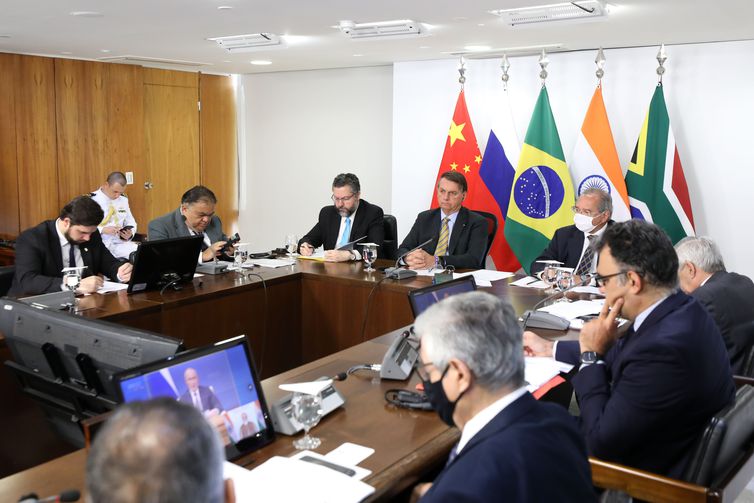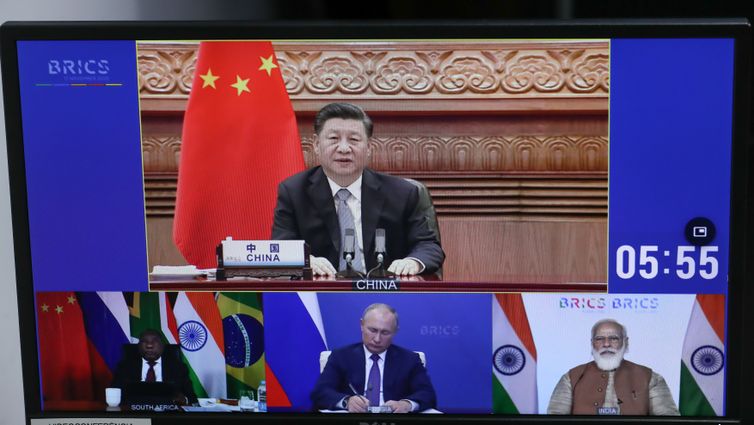Os países do Brics, grupo formado por Brasil, Rússia, Índia, China e África do Sul, manifestaram apoio à candidatura do Brasil para membro rotativo do Conselho de Segurança da Organização das Nações Unidas (ONU) em 2022 e 2023. O apoio consta no comunicado da 12ª Reunião de Cúpula do grupo, realizada hoje (17) de forma virtual.
O texto conjunto também defendeu a cooperação internacional para o enfrentamento da pandemia de covid-19 e a distribuição, de forma equitativa, de uma vacina segura e eficaz. Em relação ao comércio internacional, os países pediram uma reforma na Organização Mundial do Comércio (OMC), que propicie a defesa dos países em desenvolvimento, evite o protecionismo dos países ricos e busque uma cadeia de suprimento global mais “resiliente”.
Conselho
Sob presidência da Rússia, o Brics defendeu uma reforma ampla da ONU para abrigar mais países do grupo no Conselho de Segurança. Com Estados Unidos, Rússia, China, França e Reino Unido como membros permanentes, o conselho representa o principal árbitro de conflitos no sistema internacional e tem dez membros rotativos, eleitos para mandatos de dois anos. Há várias décadas, o Brasil, um dos países que mais ocupou o posto de membro não permanente, reivindica um assento fixo.
Reforçando o apoio ao direito internacional e à democracia, o comunicado invoca o respeito à soberania dos Estados e pede o cumprimento do princípio da não-intervenção externa nos países. Os países reiteraram o compromisso com a paz, a estabilidade, o respeito mútuo e a igualdade, com eventuais disputas internacionais sendo resolvidas por meios pacíficos.
Discurso
O comunicado está em linha com alguns pedidos do presidente Jair Bolsonaro. Em discurso na abertura do encontro, ele defendeu mudanças na OMC, reforçou o apelo por um assento permanente do Brasil no Conselho de Segurança da ONU e pediu reformas na Organização Mundial da Saúde (OMS). O presidente também prometeu divulgar uma lista de importadores de madeira ilegal da Amazônia brasileira, criticando os “ataques” que o governo sofre em relação às queimadas e ao desmatamento.
Fonte: Agência Brasil





